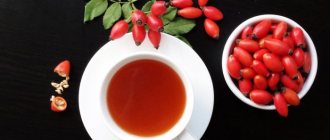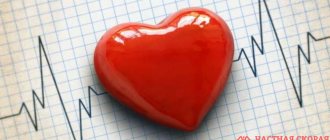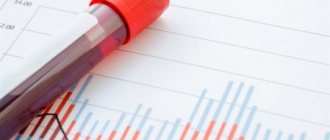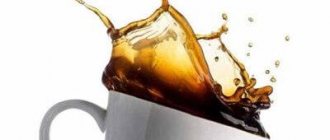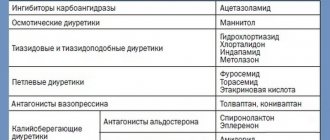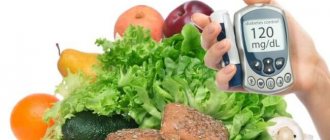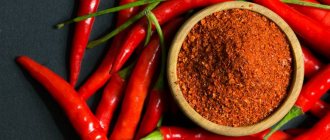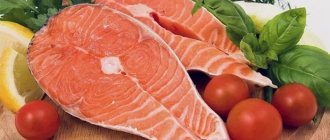Why is it so important to reduce blood viscosity?
The mechanism of development of this pathological process is quite simple. As blood viscosity increases, its movement through the vessels is disrupted.
Slow blood flow can lead to the development of atherosclerosis, varicose veins and hemorrhoids. In addition, too viscous blood can lead to the development of liver, kidney and heart failure. The most terrible and dangerous development of events may be pulmonary embolism, stroke and heart attack. These pathological conditions are caused by the formation of blood clots in vital vessels. Quite often, such conditions lead to the death of the patient, especially if assistance is not provided in the first hours. Often the cause of death is cardiac arrest or blockage of the pulmonary arteries.
what is important to consider about blood viscosity
What needs to be eaten in order for blood viscosity to be normal?
- Vitamins. It is very important that the body has enough vitamins A, C, E, B. It is these elements that allow you to normalize blood flow, the amount of lipids, and glucose in the blood. But there is another side to the coin. Excessive intake of vitamin C may cause an increase in blood viscosity. This is due to the fact that ascorbic acid reduces potassium in the blood, which leads to disruption of water-salt metabolism. There is an increase in urination, less fluid, and the blood becomes more viscous.
- Water-salt balance. It is also important that the body has enough minerals and salts. Last but not least is water balance.
- Amino acids. To normalize metabolism, it is necessary to consume amino acids. Taurine plays an important role in this process.
- Phytoncides. They have a great effect on the functioning of the intestines and maintain the correct balance in it.
- Cellulose. A huge amount of fiber is found in vegetables and fruits. It is important that they are fresh and not subject to heat treatment. It is fiber that promotes water retention in the body.
To lower blood viscosity , it is not always necessary to take medications. You can reduce it by changing your diet. Next, we will take a closer look at the list of products that can solve this problem without the use of medications.
To structure the article, we divided all these products into five main groups.
Fruits and vegetables
According to experts, it is fruits and vegetables that can optimize the functioning of the heart and blood vessels. The problem that people with high blood viscosity face is low vascular tone. The following list of products will help you cope with this:
- Lemons. Of course, along with lemons, other citrus fruits will have the same effect, because they also contain a lot of ascorbic acid and vitamin K. They normalize fat metabolism in the body and do not allow harmful fats to accumulate. And they, in turn, through the development of vascular atherosclerosis, can lead to the development of thrombosis. You should not drink pure lemon juice. After all, it has a rather aggressive effect on the gastrointestinal mucosa. Before use, you should dilute it in water. You can consume no more than 100 grams of lemon juice per day in diluted form.
- Pomegranate. Everyone knows that if heart pathology develops, you need to drink pomegranate juice. It also contains a lot of ascorbic acid, but that's not all. It contains vitamin P and B6 and a number of amino acids. They are able to optimize heart function, give normal tone to blood vessels and help lower blood pressure. Women over 50 should pay attention to this product. The pulp and zest contain a considerable amount of vitamin K. The variety of pomegranate dishes is amazing. Therefore, anyone will find a convenient form to receive this useful product.
- Ginger. It contains one of the largest amounts of vitamin B, which is important for the body. It is able to remain in the composition of ginger, despite drying, cooking and other thermal processes. It is also rich in selenium, zinc, copper, manganese and iron. It is these elements that help normalize the level of hemoglobin and red blood cells. Experts recommend drinking ginger tea in order to remove toxins and toxic substances from the body.
- Garlic. Rich in phytoncides, which are very important for blood vessels and the heart. But it also contains many different vitamins and selenium. These substances help reduce blood viscosity. Garlic plays an important role in liver detoxification.
- Beet. Due to its fibrous and high fiber content, it is able to retain water in the body. Don’t worry about these beneficial properties disappearing after cooking. In no case, on the contrary, fiber only activates its properties under the influence of temperature. In addition, beets have a pleasant sweet taste, so they are often used in salads, side dishes and even desserts.
what to eat to reduce blood viscosity
Berries
The berries contain a lot of amino acids and vitamin C. Their consumption leads to optimization of the breakdown of lipids by the liver. There are four main berries that can improve the functioning of blood vessels and the heart. These include:
- Kalina. It has many essential oils that promote normal functioning of the heart and immune system. But in this case, you should not resort to drying the berries. After all, only fresh viburnum contains these nutrients.
- Cranberry. Very rich in vitamins B, K and PP. They optimize the functioning of the human endocrine system. And if you consider that it is closely related to the immune system, it has a double effect on the body. These two most important systems in the human body will allow you to regulate metabolism and thereby avoid the development of metabolic processes in the body.
- Black currant. An invaluable bush in the countryside, because everything in it is useful: from berries to leaves. It contains a colossal amount of ascorbic acid, which is actively involved in lipid metabolism. To completely saturate your body with vitamin C, you need to eat only 30 berries a day. But that's not all. Thanks to the large number of useful microelements in the composition, namely copper and lead, muscles are strengthened. This leads to improved vascular tone.
- Mulberry. Perhaps it is the most useful of all the berries presented that can thin the blood. This is especially true for black mulberry, which contains a lot of phytoncides and essential oil.
berries that reduce blood viscosity
Drink
There are many studies that have shown the benefits of various herbs, teas and infusions to combat excessive blood viscosity, and in itself, drinking plenty of fluids and proper water balance can help a person with such a problem. The healthiest drinks include:
- Green tea. It is famous for its high amount of antioxidants. This is necessary to oxidize cells and reduce the risk of thrombosis and lysis of red blood cells. And the mood after green tea will be much better, because it contains substances that stimulate the production of the hormone of happiness.
- Cocoa. To the delight of lovers of chocolate and other cocoa products, it is recognized that daily consumption of 30 grams of cocoa will have a beneficial effect on the condition of the heart and blood vessels. This happens because cocoa actively helps absorb carbohydrates and lipids.
- Fresh and natural juice. To make it as healthy as possible, you need to leave a lot of pulp in the juice. After all, it contains a lot of fiber, vitamin B and C. As for the choice of juice, it is best to take apple, apricot, pomegranate juice. It is worth considering the fact that the content of nutrients in canned juice is much less than in fresh juice.
fresh juices with pulp to reduce blood viscosity
In addition to the above products, there are others that also have a beneficial effect on reducing blood viscosity. Their mechanism of action is that they reduce blood alkalinity, which leads to the prevention of thrombosis. These include:
- Seeds and nuts. They contain a large amount of essential oils and resins. These substances activate the normal metabolism of proteins, fats and carbohydrates. But not all nuts are healthy, especially when it comes to peanuts. After all, it contains a lot of complex fats and proteins. But pistachios and walnuts are 100% healthy. They are high in omega fats. As for seeds, it is useful to eat poppy seeds, dill, sunflowers and peppers.
- Dried fruits. It would seem that fresh berries and fruits are considered to be the healthiest. But it is worth considering the fact that when properly dried, the berries retain a lot of fructose and fiber. Despite these beneficial properties, you should not eat too much of them. This is because excessive consumption of dried fruits can lead to the development of hypervitaminosis C and increased blood sugar levels. The maximum daily dose of dried fruits should be two tablespoons.
- Porridge. But not all of it. It is mainly worth consuming cereals based on cereals, namely buckwheat, oats and wheat. But you should not overuse rice, because it contains a lot of starch. Of course, taking into account the above information, porridge with dried fruits will be a real combo in terms of usefulness. This combination normalizes the functioning of the gastrointestinal tract and fills the body with the necessary vitamins and microelements.
- Omega 3 and 6 fatty acids. These acids are abundant in fatty fish, oils and nuts. This is a great way to improve the performance of brain cells by improving the condition of cell membranes. This avoids the development of erythrocyte lysis and thrombosis. A cost-effective option for obtaining omega acids is to consume fish oil.
- Linseed oil. This is a great choice for vegans who don't eat fish. It is worth considering the fact that it should be consumed exclusively in its raw form. When frying, all the beneficial substances disappear.
- Honey. It is very important to eat at least a small amount of bee products. After all, they contain many useful trace elements, metals and salts. Regarding carbohydrates, in honey they are represented by a small amount of fructose. Propolis contains a lot of phytoncides and oils, which have a positive effect on the immune system. Therefore, it is not in vain that everyone always drinks tea with honey when suffering from respiratory diseases.
- Spices, including turmeric. Turmeric contains an antioxidant that allows the blood to be better saturated with oxygen and maintains the heart in normal tone. The same effect is found in saffron, basil, thyme, etc.
- Apple cider vinegar. It has a huge range of organic-based acids. They can lead to optimization of the gastrointestinal tract and break down lipids. Grape vinegar affects the body in the same way, but you should be careful with it, because it contains more alkali, and this can be very harmful to a person with gastrointestinal pathology.
- Soda. Can increase the alkalinity of blood plasma. This helps thin the blood and prevent the formation of blood clots. Despite such a good effect of soda on the body and blood condition, you should not abuse it. This is because it contains a lot of sodium, which has a toxic effect on the nervous system.
- Ginkgo biloba. This is a universal activator of the cardiovascular system. It is able to normalize blood pressure. But you don’t need to drink a lot of ginkgo biloba, because it can cause energy deficiency. You should consume no more than 15 grams.
- Artichoke. Able to normalize the balance of water and electrolytes. In addition, it contains a huge amount of vitamin K, which is simply necessary for normal heart function. It is worth noting another advantage of the artichoke, because all the beneficial substances in it can be preserved even during heat treatment and preservation.
- Kalanchoe. It contains a lot of resinous essential oils, which give it a viscosity and sticky consistency. This plant is often used in folk medicine to treat heart pathologies, optimize vascular tone and reduce the amount of toxins in the body.
nuts for blood thinning
You need to be very careful when consuming Kalanchoe and aloe, because they are strong allergens. A test should be carried out before any use of these substances. That is, apply a small amount of the plant and monitor the absence of pathological reactions.
Blood thinner for varicose veins
Blood thinning is one of the most important tasks in the complex treatment of varicose veins. At the same time, at each stage of the development of the disease, it is worth selecting certain drugs with a higher proportion of the active substance. Blood clots in damaged areas of the veins pose a dangerous threat to the normal nutrition and functioning of vital organs. Therefore, treatment of varicose veins is most effective in the first stages, when vascular damage has not acquired irreversible consequences.
Medicines to thin blood clots have 2 main directions:
- Anticoagulants - prevent the formation of fibrin clots by inhibiting the activity of proteins.
- Antiplatelet agents are drugs that prevent blood cells from sticking to each other.
Also, venotonics should be included in the complex of drug therapy to strengthen the walls of blood vessels, increase their tone and normalize blood flow in the damaged vein.
Anticoagulants
With varicose veins, the viscosity of blood cells is of great importance. The overall course of the disease and possible complications associated with the formation of blood clots will depend on this indicator. After a thorough history taking and ultrasound diagnostics, a phlebologist may prescribe medications that prevent the formation of blood clots - anticoagulants. They come in two types:
- Direct action - neutralizes risk factors for excessive coagulation, helps to dilute blood stagnation. Available in the form of injections or tablets (heparin).
- Indirect action - slowly reduce blood clotting factors, the medicine has a dose-dependent effect, so results can be observed after a course of taking the medicine. Representatives of this group of drugs are Aspirin and Warfarin.
Antiplatelet agents
Medicines in this group are capable of diluting venous fluid in varicose veins, preventing the “gluing” and “sticking” of red blood cells, and improving vascular patency. To prevent and treat the symptoms of thrombophlebitis, the following drugs are most often prescribed:
- Aspirin is a blood-thinning tablet that belongs to the group of non-steroidal anti-inflammatory drugs. Dispensed without a prescription, available in every pharmacy. Aspirin has many contraindications, so it should be taken in small doses under the strict supervision of the attending physician;
- Dipyridamole is a drug that can thin clots and inhibit platelet aggregation. Its pharmacological properties are similar to aspirin, but less dangerous due to contraindications.
- Warfarin is a medication for the treatment and prevention of thrombosis and varicose veins with a wide range of applications. It is a vitamin K antagonist, i.e. interferes with the active action of this vitamin.
What foods should you exclude from your diet?
It is necessary not only to saturate your diet with healthy foods, but also to get rid of harmful foods. Of course, there are a number of foods that cannot be excluded, but you can minimize their consumption. These products include:
- Milk and dairy products. Milk contains casein, which, under the action of an enzyme, leads to their breakdown. This is a long process that is quite energy-consuming. In addition, during breakdown, a lot of fructose is formed, and this is what helps increase blood viscosity.
- Alcohol. The body perceives alcohol as poison. To remove this poison from the body, you need to spend a large amount of liquid. This is what leads to the fact that the next day after severe alcohol intoxication, severe thirst may develop. This effect of alcohol on the body leads to increased blood viscosity. Moreover, this phenomenon is observed even when drinking alcohol in small quantities. Another thing is red wine, drinking it is even healthy.
- Animal fat. Pork, sausage and beef in themselves are not harmful to the body. But with excessive consumption, fat deposition under the skin and in the blood vessels can develop. Atherosclerosis leads to blood thickening due to impaired blood flow through the vessels. In advanced cases, this leads to the development of liver and kidney failure. Of course, you cannot completely eliminate such food, but everything should be in moderation.
- Potato. Besides potatoes, you should be careful with rice. These foods contain a lot of starch, which turns into carbohydrates and leads to an increase in blood sugar. Due to this, blood viscosity increases.
- Bananas. Bananas contain a huge amount of carbohydrates. You should not eat more than two bananas a day. As for children, it will be too much for them. Athletes can afford a little more bananas in protein shakes.
what to eat to reduce blood viscosity
Why are oral anticoagulants needed?
Anticoagulants are medications that reduce the activity of the blood clotting system and prevent excessive blood clots. Modern anticoagulants affect various parts of the blood coagulation process and are used for the prevention and treatment of arterial or venous thrombosis and thromboembolism.
Classification of anticoagulants
All anticoagulant drugs are divided into two large groups:
- direct anticoagulants (drugs prescribed by injection) that inhibit thrombin activity - direct anticoagulants;
- indirect anticoagulants, or oral anticoagulants (prescribed in tablet form), which interfere with the formation of prothrombin in the liver. They are also called vitamin K antagonists, or indirect anticoagulants.
Indirect anticoagulants
Vitamin K is a vitamin of natural origin, found mainly in green leafy vegetables (spinach, broccoli, lettuce) and enters the body with food. In addition, vitamin K is synthesized by bacteria in the intestines. The body uses vitamin K to make a number of proteins in the liver that are involved in blood clotting. Daily requirement of vitamin K: 0.03-1.5 mcg/kg/day (up to 105 mcg/day).
Table 1. Vitamin K content in foods (µg/100 g of product)
| Products | Vitamin K content |
| Green tea, leaves | 964 |
| Lettuce, green leaves | 850 |
| Chard, leaves raw | 830 |
| Cabbage leaf | 817 |
| Cabbage, raw | 487 |
| Brussels sprouts | 434 |
| Spinach, leaves raw | 383 |
| Spinach, fresh/frozen leaves, cooked | 360 |
| Black tea, leaves | 42 |
| Brussels sprouts, fresh, frozen | 289 |
| Raw chicory | 231 |
| Red leaf salad | 210 |
| Broccoli raw | 205 |
| Soybean oil | 193 |
| Broccoli, fresh/frozen, cooked | 192 |
| Green onions | 190 |
| Beans | 140 |
| Iceberg lettuce | 123 |
Oral anticoagulants, interfering with this process, significantly increase blood clotting time. However, oral anticoagulants do not thin the blood or dissolve existing blood clots, although they can stop existing clots from growing.
Normally, natural blood anticoagulants ensure that blood clotting occurs only when the integrity of the blood vessels is disrupted. However, in certain clinical conditions called thrombotic disorders, this same mechanism can lead to the unwanted formation of life-threatening blood clots called thrombi. In such situations, the action of anticoagulants helps prevent excessive thrombus formation.
If you have a blood clot or are at risk of developing blood clots, your doctor may prescribe anticoagulants (such as warfarin) to prevent blood clots as part of your treatment.
Classification of indirect anticoagulants
All indirect anticoagulants are divided into three main groups:
- monocoumarins – warfarin, marcoumar, sincumar;
- dicoumarins – dicoumarin, tromexane;
- indanediones – phenyline, dipaxin, omefin.
The most common indirect anticoagulant is warfarin, which is associated with the predictability of its action and stable anticoagulation rates.
Indications for the use of oral anticoagulants
The following main reasons for the use of oral anticoagulants can be identified:
- atrial fibrillation: a disturbance of the heart rhythm in the form of erratic contraction of the atria, which can lead to the formation of clots on their walls;
- mechanical heart valves: surgical replacement of damaged heart valves with their mechanical counterparts. In this case, the body reacts to the “foreign” mechanical valve and starts an unwanted blood clotting process.
1. Koertke H. et al INR Self-Management Following Mechanical Heart Valve Replacement Journal of Thrombosis and Thrombolysis, 2001;
9, 41-45. Approximately 75% of complications after valve replacement surgery are due to bleeding and thromboembolism, which can occur within the first year after surgery.
In patients with a mechanical mitral valve prosthesis, massive thromboembolism occurs at a rate of 4-12% per year. In patients with a mechanical prosthesis in the aortic position, this figure is higher.
2. Herijgers, P. et al Improving the quality of anticoagulant therapy in patients with mechanical heart valves: what are we waiting for? European Heart Journal 2007 28, 2424-2426.
Warfarin helps reduce these rates to about 1% and continues to be the most effective drug for most patients.
- Deep vein thrombosis: When blood circulation is slow, clots can form in the deep veins of the thigh or pelvic muscles.
- Pulmonary embolism: A clot that forms in the deep veins travels to the right side of the heart and travels through the pulmonary arteries to the lungs, where it blocks blood flow.
- Prevention of excessive blood clots due to genetic bleeding disorders.
- Stroke: A blood clot travels to the brain and causes sudden cessation of cerebral circulation.
- Myocardial infarction: Damage to the heart muscle from a myocardial infarction can cause blood clots to form in the ventricles of the heart.
3. Butchart EG Antithrombotic management in patients with prosthetic valves: a comparison of American and European Heart guidelines, 2009; 95: 430-436.
Aspirin Cardio or Warfarin?
Based on certain criteria (age and additional risk factors), the attending physician may prescribe patients with atrial fibrillation one of two options for antithrombotic drugs: antiplatelet drugs, such as aspirin (prevents platelets from sticking together) or anticoagulant drugs, such as warfarin (blocks clotting factors). blood):
- acetylsalicylic acid (aspirin) if the risk of stroke is low;
- warfarin, which is recommended for those at higher risk of stroke.
The pharmacological effect of aspirin as an anticoagulant is to inhibit the adhesion of platelets, the main component of a blood clot, thus acetylsalicylic acid prevents the development of thrombosis of blood vessels.
The indication for the use of aspirin for blood thinning is the presence of a transient cerebrovascular accident in the past - i.e. such a disorder in which neurological symptoms manifested themselves for no more than 24 hours.
Both drugs are taken in tablet form, but more careful monitoring of blood coagulation is required when taking warfarin. Therefore, today the typical solution for daily thrombosis prevention is long-term use of low-dose aspirin to thin the blood (Aspirin Cardio). But research suggests that warfarin is more effective in reducing the risk of stroke.
4. Hart RG et al. Meta-analysis: antithrombotic therapy to prevent stroke in patients who have nonvalvular atrial fibrillation. Ann Intern Med. 2007; 146 (12): 857-867.
In addition, the instructions for use of Aspirin Cardio for blood thinning separately indicate a significant list of contraindications. Also, any instructions for aspirin mention pronounced undesirable effects that develop with long-term use of aspirin to thin the blood, even in low dosages. With long-term use of acetylsalicylic acid, which is part of Aspirin Cardio, it is possible to develop erosions and ulcers of the gastrointestinal tract, thrombocytopenia (decreased platelet count), and increased levels of liver enzymes.
Aspirin tablets have no obvious advantages in terms of cost. The price of “aspirin for the heart” is quite comparable to the cost of treatment with warfarin. Even American aspirin for thinning the blood is far from a panacea.
Compared with no treatment, warfarin reduced the risk of stroke by 64%, which is almost three times more than taking the blood thinner aspirin (for more information, talk to your doctor, who can recommend the drug that's best for you) .
Figure 1. Warfarin and stroke risk
In some cases, indirect anticoagulant drugs need to be taken for several months, sometimes throughout life. The duration of the course is determined by the doctor.
Direct and indirect anticoagulants reduce blood clotting and therefore increase the risk of bleeding, so compliance with the dosage regimen is vital. Under no circumstances should you increase the dosage or shorten the interval for taking anticoagulants.
Monitoring the effectiveness of these drugs is also of paramount importance: a blood test called INR (international normalized ratio) helps determine the most optimal dosage of oral anticoagulants.
conclusions
Quite often, increased blood viscosity is a result of poor nutrition. Therefore, you should be attentive to your diet and adjust it as necessary. Sometimes, simple dietary restrictions can protect a person from stroke, heart attack and other serious pathologies.
It is best to contact a specialist who will assess the person’s condition and help create a nutrition plan.
But the cause of increased blood viscosity is not always a food problem. It is often one of the pathological mechanisms of complex diseases such as diabetes or other metabolic disorders. In this case, contacting a nutritionist is not enough; you need to make an appointment with an endocrinologist. Only he will be able to correctly assess the situation and adjust the treatment.
Aspirin analogues for blood thinning - why reinvent the wheel?
While a person is busy searching for an answer to the question of how to reduce blood viscosity, nature has long taken care of his health. There is also a product in its pantries with antiplatelet properties that can give acetylsalicylic acid a head start in terms of its effectiveness and safety. This substance is from the group of bioflavonoids – dihydroquercetin. It is found in many plants, although in different quantities.
The highest concentrations of dihydroquercetin were found in the basal parts of Siberian and Dahurian larches, from where it is extracted today. Research has shown that the flavonoid can truly be considered a phytopanacea for the cardiovascular system. It is able to block the removal of charge from the red blood cell and the adhesion of red blood cells to each other, thereby reducing the viscosity of the blood. This property of dihydroquercetin is especially pronounced when combined with ascorbic acid.
Experts name other properties of a unique natural substance:
- increases the deformability of red blood cells - their ability to change their shape in order to squeeze into the smallest vessel;
- protects the membranes of red blood cells from the destructive effects of free radicals;
- reduces blood glucose levels;
- reduces the level of “bad” cholesterol in the blood, increases cholesterol;
- strengthens the walls of blood vessels and capillaries, protects them from damage, restores permeability;
- improves blood microcirculation.
The undeniable advantage of dihydroquercetin in comparison with aspirin is its absolute safety. To thin the blood, the substance can be taken without fear by elderly people, pregnant women and children. It is worth remembering that the most effective are those flavonoid-based preparations in which it is combined with vitamins C and E.

